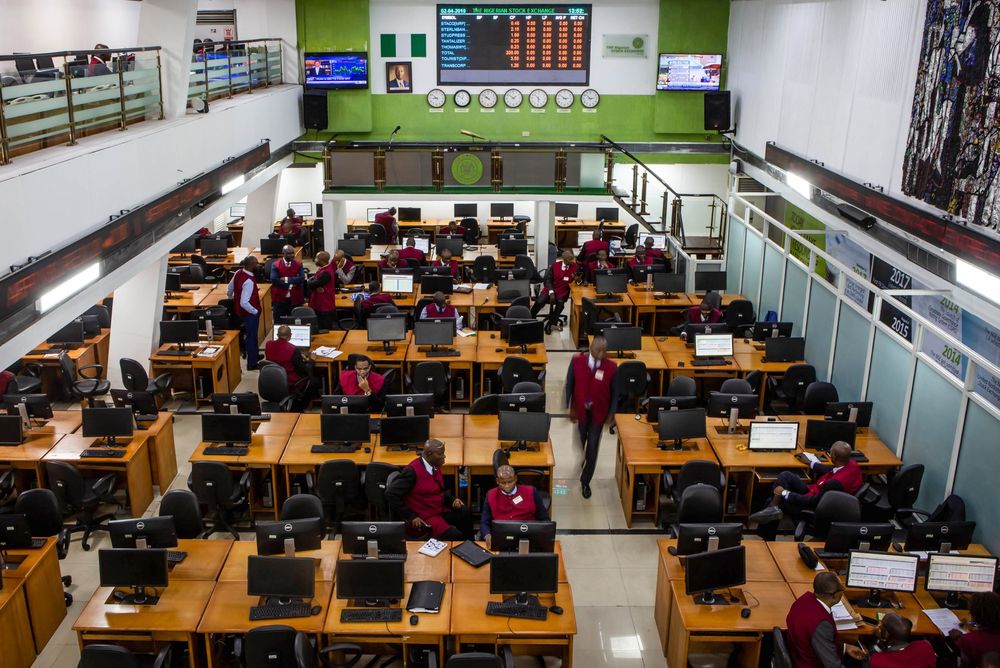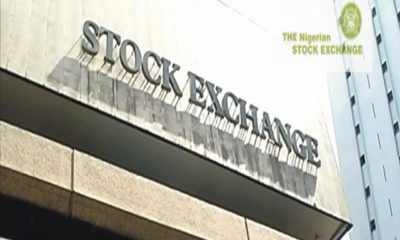The Nigerian stock market shed N634 billion or three per cent in the first quarter (Q1) of 2021 as policy reversal, continued absence of foreign investors influenced the performance of the market.
The market, which soared by over 50 per cent last year, was projected to sustain the uptrend in the 2021.
However, after rising 5.3 per cent in January, the market declined 6.1 per cent in February and fell 1.9 per cent in March, bringing the total decline for the first quarter to three per cent or N634 billion.
The Nigerian Stock Exchange (NSE) market capitalisation fell from N21.063 trillion at the beginning of the year to N20.429 trillion on Wednesday, which was the last day of the quarter.
Similarly, the NSE All-Share Index (ASI) declined from 40,270.72 to 39,045.13.
However, the decline in Q1 of 2021 was better than the 20.6 per cent recorded in Q1 of 2020, when the COVID-19 pandemic impacted the market negatively.
Although the market was expected to sustain the growth recorded in January on the expectations of positive earnings season and better yields in the market, delayed dividend declarations and uptick in fixed income instruments’ yields reversed the trend in February, leading to a decline of 6.1 per cent.
But the loss was moderated in March following dividend declarations by companies for the 2020 financial year, hence, the market dipped by only 1.8 per cent in month.
Zenith Bank Plc, Guaranty Trust Bank Plc, Dangote Cement Plc, United Bank for Africa Plc, United Capital Plc, BUA Cement Plc are among some of the companies that attracted increased demand for stocks by investors, which led to the moderation of the decline.
Commenting on the performance of the market in Q1, the Chief Executive Officer (CEO) of Blackstone Capital, an investment management firm, Dr. Lizzie Kings-Wali, said following a sterling performance of 50 per cent return in 2020, the equity market ended the first quarter of the year with a negative return of 3.04 per cent, as most sectoral indices closed bearish, except for the insurance and oil & gas sector indices, which recorded positive returns.
“Notably, equities had a good start in January with the NSE ASI recording 5.32 per cent gain as the risk-on sentiment that dominated investor appetite for equities in 2020 persisted, albeit that was short-lived in February by the rising yield environment, which undermined fund managers’ allocation to equities and even spurred a sell-off, leading to 6.2 per cent and 1.9 per cent loss in February and March respectively, especially as the strong rally in 2020 has moderated the compelling dividend yield on some value stocks,” Kings-Wali said.
According to her, uncertainties over probable naira devaluation were keeping foreign investors on the fence, with barely 25 per cent participation in the equity market.
“On the flip side, domestic investors, especially institutional investors such as pension fund managers and conventional asset managers, who are currently key providers of liquidity in the equity market are increasingly seeking new opportunities in the fixed income market, as yields steadily rise for a number of reasons,” she said.
However, she added that there are still value opportunities in the equity market as some counters with sound fundamentals still offer attractive valuations and potentially strong upsides.
“Hence, our approach is to continue to diversify our clients’ portfolio with the right investment options, including equities, fixed income securities and alternative assets, based on different clients’ profile and market dynamics. “Whilst higher inflationary pressure, persistent uncertainties in the currency market and tapered outlook on corporate earnings performance may remain overhang factors for equity market performance in the months ahead, especially as earnings season winds down, we see prospects for bargain hunting and trading opportunities in the market and would continue to explore such for our clients to ensure they grow their wealth, especially as it is important to preserve their networth against the rising risk of inflation uptrend,” she said.
Also, the Executive Vice Chairman of Funds Matrix and Assets Management Limited, a leading broker/dealer member of the NSE, Mr. Yadinma Onwu, said with the strong 50 per cent rally in 2020 and a steep run of 5.3 per cent gain in January 2021, the modest price correction in the equity market in February and March, which led to the 3.04 per cent loss, was expected.
“Equities is a volatile asset class and the level of volatility seen thus far has been moderate.
In fact, today’s bearish market portends new bargain opportunities for astute investors, who would take advantage of the price weakness to take position in value-laden stocks with strong fundamentals and price upside,” he stated.
According to Onwu, notwithstanding the rising yield environment, which has influenced some investors risk-off sentiment and moderated funds flow into the equity market, the level of liquidity is still strong, with the NSE recording an average daily transaction of N5.4 billion daily.
“More importantly, Nigerian equity market still trades at discount to peers and dividend yield on many value counters are still very attractive, with some stocks offering 10 per cent dividend yield at current price levels.
“It imperative for investors to seek relevant advice and ensure due diligence in investing in the market, as the recent price moderation in quality stocks presents new opportunities in the equity market, albeit investors need to be effectively guided by professionals to ensure that their investments match their objectives and profiles.
“For us at Funds Matrix and Asset Management Limited, we remain bullish on equities and maintain our positive outing for the market in 2021, even so we expect modest gain, compared to the sterling 50 per cent return on the NSE ASI in 2020,” he said.


 Forex3 weeks ago
Forex3 weeks ago


 Naira2 weeks ago
Naira2 weeks ago
 Billionaire Watch2 weeks ago
Billionaire Watch2 weeks ago






 Naira3 weeks ago
Naira3 weeks ago






 Naira2 weeks ago
Naira2 weeks ago


 Naira1 week ago
Naira1 week ago




 Naira4 weeks ago
Naira4 weeks ago






 Naira1 week ago
Naira1 week ago

















